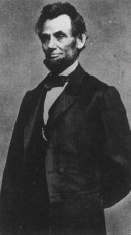German Liberalism and the Dissolution of the Weimar Party System, 19181933
Publication of this work was made possible in part through a grant from the Division of Research Programs of the National Endowment for the Humanities, an independent federal agency whose mission is to award grants to support education, scholarship, media programming, libraries, and museums, in order to bring the results of cultural activities to a broad, general public.
1988 The University of North Carolina Press
All rights reserved
Manufactured in the United States of America
The paper in this book meets the guidelines for permanence and durability of the Committee on Production Guidelines for Book Longevity of the Council on Library Resources.
92 91 90 89 88 5 4 3 2 1
Library of Congress Cataloging-in-Publication Data
Jones, Larry Eugene.
German liberalism and the dissolution of the Weimar party system, 19181933 / by Larry Eugene Jones.
p. cm.
Bibliography: p.
Includes index.
ISBN 0-8078-6550-8 (alk. paper)
1. Deutsche Volkspartei (19181933)History. 2. Deutsche
Demokratische ParteiHistory. 3. GermanyPolitics and
government19181933. 4. LiberalismGermanyHistory20th
century. I. Title.
JN3970.D38J66 1988 87-34904
943.085dc19 CIP
Portions of this work appeared earlier in somewhat different form in Crisis and Realignment: Agrarian Splinter Parties in the Late Weimar Republic, 192833, in Peasants and Lords in Modern Germany: Recent Studies in Agricultural History, ed. Robert G. Moeller, pp. 198232 (London: Allen and Unwin, 1986); The Dying Middle: Weimar Germany and the Fragmentation of Bourgeois Politics, Central European History 5 (1972): 2354 ( 1972 Emory University); Inflation, Revaluation, and the Crisis of Middle-Class Politics, 192328: A Study in the Dissolution of the German Party System, Central European History 12 (1979): 14368 (1979 Emory University); and Gustav Stresemann and the Crisis of German Liberalism, European Studies Review 4 (1974): 14163 ( Sage Publications Ltd.) and are reproduced here by permission of the publishers.
To my parents
Contents
PART ONE
A New Beginning, 19181920
PART TWO
The Search for Stability, 19201922
PART THREE
Between Ruin and Reconstruction, 19221924
PART FOUR
Stabilization and Fragmentation, 19241928
PART FIVE
At the Crossroads, 19281930
PART SIX
In the Shadow of Nazism, 19301933
Preface
THE FAILURE OF GERMAN liberalism and the collapse of the Weimar Republic are questions of enduring historical interest, inseparably linked to what Willson Coates and Hayden White have called the ordeal of liberal humanism. Not only has the German experience between 1918 and 1933 given rise to persistent doubts about the viability of democratic institutions during periods of acute social and economic stress, but more importantly it has done much to challenge the liberal faith in the essential rationality of man. Given the profound implications that the fate of Weimar democracy and the rise of Nazism hold for the western liberal tradition and its faith in progress through reason and law, it is essential that we as products, if not adherents, of that tradition develop a fuller understanding of the specific processes, both long-term and short-term, that led to the collapse of the German liberal movement and to the destruction of the political order with which it was so closely associated.
Almost all historians are in essential agreement that one of the principal reasons for the failure of the Weimar Republic was the fragmentation of the German party system and the inability of those parties upon whose support the fate of the republic ultimately depended to produce a viable consensus for the conduct of national policy. At the crux of this problem lay the irreversible decline of the German liberal parties and the progressive disaffection of Germanys liberal electorate from the system of government in whose founding their leaders had played such a prominent role. The reasons for the collapse of the German liberal movement from 1918 to 1933, however, are extremely complex and defy reduction to some sort of simple formula or common denominator. One should be particularly careful about simply dismissing the failure of Weimar liberalism as a consequence of German liberalisms historic failures in the nineteenth century or the result of what some scholars have identified as the essentially illiberal character of Germanys political culture. On the contrary, there is considerable evidence to suggest that the founding of the Weimar Republic marked both the culmination of a liberal revival underway since the turn of the century and the beginning of a bold new era in the history of the German liberal movement. This does not, of course, mean that the fate of Weimar liberalism was not affectedand in some instances profoundlyby long-range factors such as the historic schism between the two wings of the German liberal movement or the heterogeneity of liberalisms social base. Still, it should serve as a valuable corrective to those who all too frequently have argued that Weimar liberalismand with it the Weimar Republicwas doomed to failure by the weight of historical tradition.
The following study represents the culmination of more than twenty years of research and writing on the history of the German party system during the Weimar Republic. It originated at the University of Wisconsin in the late 1960s as a dissertation on the efforts to create a united liberal party from 1924 to 1930 and was subsequently expanded to cover the entire Weimar period. Research for the dissertation was made possible by a Fulbright Fellowship at the University of Bonn from 1966 to 1968. A later fellowship from the Alexander von Humboldt-Stiftung made it possible for me to spend two years (197577) at the Ruhr-Universitt in Bochum. It was then that the present project began to take shape and that much of the primary research was completed. Smaller grants from the Deutscher Akademischer Austauschdienst, the American Philosophical Society, and the Canisius College Faculty Fellowship Program enabled me to return to Germany for short research trips in the summers of 1979, 1980, and 1983. I was also extremely fortunate to be affiliated from 1978 to 1983 with an international project on Inflation und Wiederaufbau in Deutschland und Europa 19141924 financed through a generous grant from the Volkswagen-Stiftung and coordinated by a four-man consortium consisting of Gerald Feldman, Carl-Ludwig Holtfrerich, Gerhard A. Ritter, and Peter-Christian Witt. Lastly, a grant from the American Council of Learned Societies for the 198384 academic year and a faculty fellowship from Canisius College for the summer of 1985 made it possible for me to complete the writing of the manuscript. Subventions from the National Endowment for the Humanities and Canisius College helped defray the costs of publication.
The completion of this work would not have been possible without the cooperation and assistance of a large number of archives, libraries, and research institutes on both sides of the Atlantic. I am particularly indebted to the staff of the Bundesarchiv in Koblenz for the continuous help and support they have provided ever since my first visit in the winter of 196667 and would like to single out my good friend Hans-Dieter Kreikamp not only for his tireless labors on my behalf but also for his hospitality and generosity. I would also like to take this opportunity to thank the Politisches Archiv des Auswrtigen Amts in Bonn, the Archiv fr Christlich-Demokratische Politik at the Konrad Adenauer-Stiftung in Sankt-Augustin, the Geheimes Staatsarchiv Preuischer Kulturbesitz in Berlin-Dahlem, the Hauptstaatsarchiv in Stuttgart, the Bayerisches Hauptstaatsarchiv in Munich, the Nordrhein-Westflisches Hauptstaatsarchiv in Dsseldorf, the Staatsarchiv Hamburg, the Generallandesarchiv Baden in Karlsruhe, the Landesarchiv Schleswig-Holstein in Schleswig, the city archives in Brunswick, Cologne, Mnchen-Gladbach, and Munich, and the Yale University archives in New Haven, Connecticut, for their cooperation. I have also drawn heavily upon the holdings of the Preuische Staatsbibliothek in West Berlin, the Bayerische Staatsbibliothek in Munich, the Institut fr Weltwirtschaft an der Universitt Kiel, the Weltkriegsbcherei at the Wrttembergische Landesbibliothek in Stuttgart, the Institut fr Zeitgeschichte in Munich, the university libraries at Bochum, Bonn, and Cologne, the Hoover Institution on War, Revolution, and Peace at Stanford University, and the University of Michigan Library in Ann Arbor. My only regret is that I was unable to use the holdings of the Zentrales Staatsarchiv der Deutschen Demokratischen Republik in Potsdam, although it is uncertain how much that would have altered the story I have to tell here.





